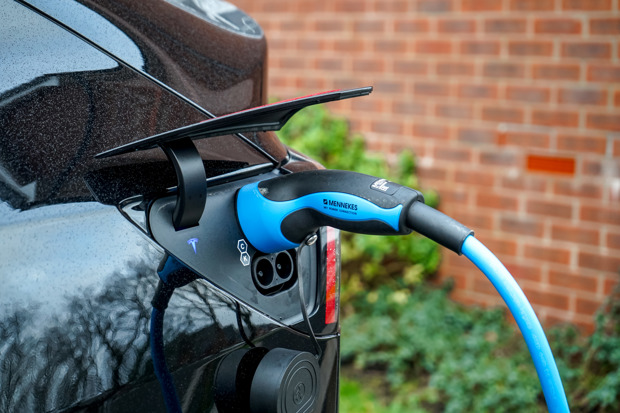Government to cut EV home charging red tape

Proposed new planning reforms will cut red tape and make it easier for both renters and those without a driveway to charge an electric car at home, the government has announced.
The aim is to help more people benefit from cut-price home charging, which it says can cost from as little as 2p a mile on the right home energy tariff.
For renters and leaseholders, the reforms will see EV chargers mandated in new covered car parks.
Meanwhile, for those without driveways, consultation will look at removing planning permission to install cross-pavement charging gullies. Applications will also be speeded up and motorists will save £250 in application fees.
The government also says it will work with the energy regulator, Ofgem, to ensure operators deliver smooth and rapid connections for public charging, to bolster network resilience.
"These reforms will improve infrastructure for the EV revolution, increase chargepoints across the country and open up affordable home charging to thousands more households," says transport secretary Heidi Alexander.
"Wherever you park your car, we’re making it fairer, easier and cheaper to make the switch to electric. It’s good news for drivers and a big boost for the growing British EV industry – cutting costs and supporting jobs."
The planning reforms follow a £25m scheme announced in July to support local authorities in providing cross-pavement channel charging solutions for those without a driveway.

